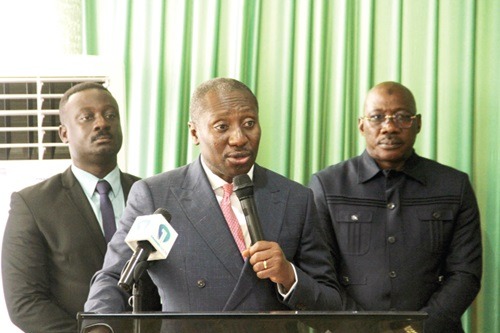Mr Alexander Afenyo-Markin, the Third Deputy Speaker of the ECOWAS Parliament, said the state must significantly invest in innovative waste management strategies and turn the associated challenges into opportunities.
The state, he said, must also enhance enforcement against illegal fishing practices by foreign trawlers, and push for the establishment of an Economic Community of West African States (ECOWAS) Coastal Protection Fund to assist communities most affected by plastic pollution and declining fish stocks.
He painted a gloomy picture of the negative effects of plastic littering on the coast and the beaches of countries in the ECOWAS sub-region and urged member states to phase out single-use plastics and organise comprehensive public education campaigns to change behaviours/attitudes toward plastic use and waste management.
Mr Afenyo-Markin, also the Majority Leader and New Patriotic Party (NPP) MP of Efutu, made the proposal in a welcome address, read on his behalf at the opening of the ECOWAS Parliament’s Delocalized Joint Meeting of the Committees on Agriculture, Environment and Natural Resources, Energy, and Mining/Infrastructure at Winneba in the Central Region.
The National Democratic Congress (NDC) Member of Parliament for Juaboso, Mr Sampson Ahi, and Member of Ghana’s Delegation to the ECOWAS Parliament, represented the Third Deputy Speaker of the Community Parliament, at the session.
Mr Afenyo-Markin said: “Our once-pristine beaches are now littered with the debris of our modern lives. Plastic waste chokes our waterways, suffocates our marine life, and poisons the very waters that have nourished us for millennia.”
The harmony enjoyed by countries along the region’s coasts was under threat due to the ever-increasing plastic waste and immediate action was required to protect livelihoods and the people, he said.
He advocated the adoption of pioneering initiatives such as Safisana in Ghana and Recuplast in Senegal.
The Safisana model combines faeces and organic waste treatment with renewable energy, nutrient production, and water generation.
This innovative system not only addresses waste issues but also generates biogas for energy and organic fertilizer for agriculture, resulting in a truly circular economy.
The Recuplast initiative collects up to 150 tonnes of plastic waste per month, providing livelihood for over 5,000 people.


